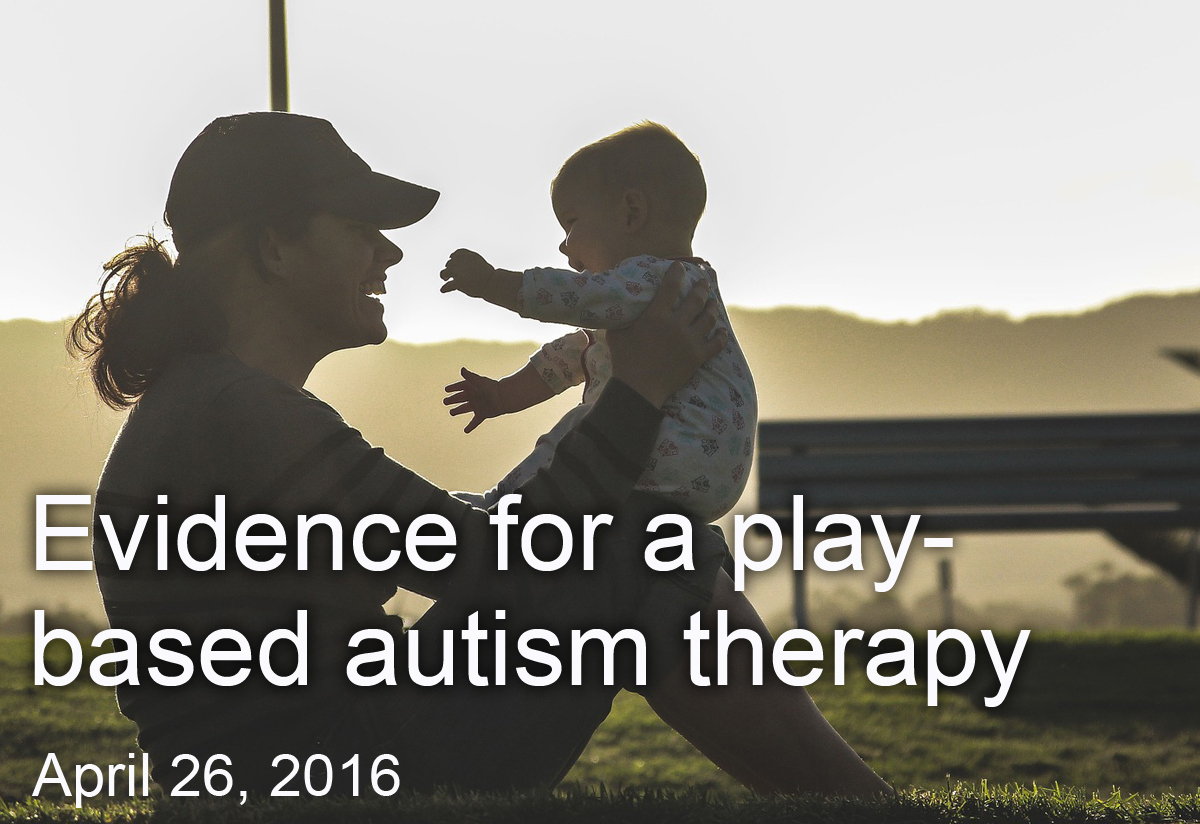Check out other stories from the Latest News
Responsive Play as a Therapy for Autism
By Shana R. Spindler, PhD on April 26, 2016

Background: Play is critical for the social and emotional growth of children. In a type of interaction called responsive play, parents follow the lead of the child, reacting to the child’s interests and movements rather than guiding the direction of activity. Several studies have found that responsive play may improve the social engagement between children with autism and their caretakers.
What’s new: In the May 2016 issue of the Journal of Autism and Developmental Disorders, researchers published a study testing the effectiveness of a responsive therapy called JASPER, which stands for Joint Attention, Symbolic Play, Engagement, and Regulation. In the study, 85 children with autism and their parents were randomly assigned to participate in JASPER or a parent-only, discussion based training session. Each program consisted of weekly one-hour training sessions for ten weeks.
At a six month follow-up visit, compared to parents who received parent-only education, the parents from the JASPER group had increased responsive behaviors to their children, and their children spent more time jointly engaged.
Why it’s important: This study links increases in a child’s social engagement to improvements in a parent’s responsive behavior following JASPER therapy. Previous studies of JASPER focused only on the improvements in the child’s engagement.
Help me understand :
| Source(s) : |
| Tweet |

